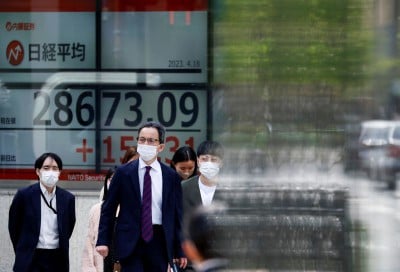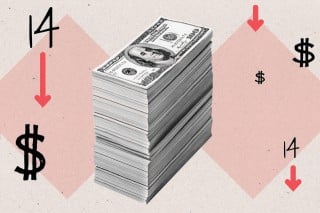
H&M has admitted it needs to do more to improve consistency in clothes sizing, after it faced a backlash to its new returns fee for online items.
One shopper said the difference between same-size garments was "staggering".
When asked about the issue by the BBC, H&M's boss said: "There's always improvement to make."
Helena Helmersson insisted that the retailer had "lower returns than many others".
But she said the firm was taking proactive steps to ensure that "whatever customers buy, they want to keep", for instance by improving H&M's size guides for customers.
Under its new fee, H&M customers must pay £1.99 to return items bought online, with the cost taken from their refund. Previously all returns were free.
The news prompted many shoppers to vent their frustration about inconsistent sizing online and on social media.
"If retailers could all get their sizing correct and consistent, there would be far less returns to begin with! The difference between the same size garments is ridiculous," one told the BBC.
"Returns are not always the customer's fault," said another. "When manufacturers tighten up their quality control and standardise sizes then we'll have fewer returns!"
Concern about inconsistent sizing appears to go wider than just H&M, although some shoppers said the retailer had a particularly bad track record.
"Among big retailers H&M is particularly bad at sizing. Their M can be anything from XS to XXL," one shopper told the BBC.
Another urged H&M to open more High Street shops with changing rooms, so that shoppers can try on items in person.
Image source, Lesley Hodgson
After buying a pair of green H&M trousers a month ago, last week Lesley Hodgson, 38, from Halifax, liked them so much that she ordered two more pairs in the same size in different colours.
So she was shocked to find that when they arrived, the new black pair fit her perfectly, just like the green - but thebeige pair were too small, despite all of them being labelled a European size 40.
"I have to really breathe in to fasten them, they're far too tight everywhere," she told the BBC.
Ms Hodgson said she had contacted H&M as she didn't think it was fair she had to pay the returns fee.
"It's not like I've ordered multiple sizes to see which one fits me. I already knew they fit me, I just wanted more colours, so I bought them in good faith," she said.
An H&M spokesperson said all customer queries are dealt with through the firm's dedicated customer service team.
Catherine Shuttleworth, a retail expert, said inconsistent sizing is "a real shopper bug bear".
"One of the biggest reasons to return clothes is poor fit," she told the BBC. "So it's commercially sensible for clothing retailers to work on the communicating of sizing."
Ms Shuttleworth said one way retailers could do that was by using online tools, powered by artificial intelligence, which asked customers questions about their height, weight, age, gender and body shape to help find the perfect clothing fit.
Image source, Getty Images
Initially the fashion giant said it planned to charge for online items returned both by post and in store. But after the BBC's reporting, H&M backtracked on its decision to charge for in-store returns, claiming the information on its website had been "inaccurate".
Rival retailers such as Zara, Boohoo, Uniqlo and Next already charge for online returns.
On Wednesday, H&M's head of investor relations, Joseph Ahlberg, said the retailer had introduced the fee "to remind consumers to be mindful of making returns due to the climate impact".
Speaking on a conference call with the media and investors, Mr Ahlberg said: "It's a win for the consumer, helping them to make good choices, it's a win for the environment, with less transport and emissions, and it also will benefit our model I think over time.
"We have an omni-model and this is part of the advantage of offering our fashion both in stores and online."
Demand for online shopping has risen sharply since the pandemic, but it has also led to a big increase in the number of items being returned because they do not fit, or are not as expected.
Traditionally big retailers have offered free returns for online purchases to attract customers, but they can be costly due to the work involved in processing returned stock.
Many shoppers are also becoming more aware of the environmental impact of deliveries and returns. Fewer postal returns means fewer delivery vehicles travelling up and down with parcels.
Additional reporting by Emma Pengelly.
Your rights when it comes to returns
- You are entitled to a refund within 30 days of the sale if goods are faulty and bought from a UK-based retailer
- Shops are not forced to exchange goods if you have simply changed your mind, unless you bought them online in which case you have the right to return them within 14 days
- In most cases, goods bought online have extra protection
- You can find more information on your consumer rights here.
What experiences have you had with sizing in H&M? Email [email protected].
Please include a contact number if you are willing to speak to a BBC journalist. You can also get in touch in the following ways:
- WhatsApp: +44 7756 165803
- Tweet: @BBC_HaveYourSay
- Upload pictures or video
- Please read our terms & conditions and privacy policy
If you are reading this page and can't see the form you will need to visit the mobile version of the BBC website to submit your question or comment or you can email us at [email protected]. Please include your name, age and location with any submission.






